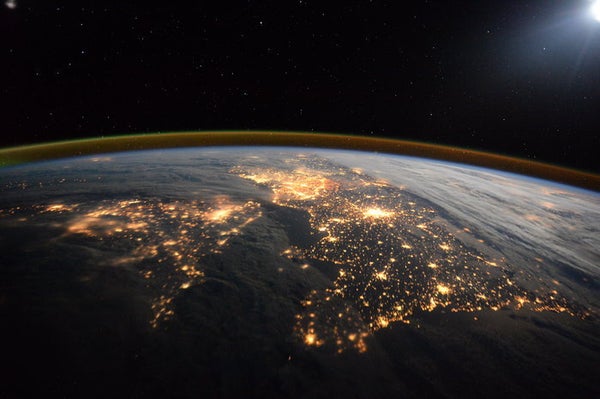This article was published in Scientific American’s former blog network and reflects the views of the author, not necessarily those of Scientific American
A wonderful commentary by Mario Livio in this week's edition of Nature reveals the details of one of Winston Churchill's newly unearthed writings; not on political and historical strategies, but on the nature of life in the Universe. Remarkably, Churchill started mulling over these ideas in 1939 - as western Europe was about to slide into the brutal conflict of World War II.
As Livio discusses, Churchill identified many of the key elements of what we'd now consider to be modern astrobiology: The role of liquid water environments for life, the dependency on stellar properties and planetary configurations, and speculation on the probabilities of life having occurred elsewhere. He also, perhaps not surprisingly, meditated on the seeming contradictions and perils of human behavior in a grander, cosmic context.
In fact Churchill had long demonstrated both his fascination with, and aptitude for, science. Back in 1931 he had already penned his thoughts on the possibilities of nuclear power, writing "If the hydrogen atoms in a pound of water could be prevailed upon to combine together and form helium, they would suffice to drive a thousand horsepower engine for a whole year." In 2015, London's Science Museum held a special exhibit on the various scientific efforts and breakthroughs that occurred under Churchill's wartime and post-war leadership of the UK, including the development of radar.
On supporting science journalism
If you're enjoying this article, consider supporting our award-winning journalism by subscribing. By purchasing a subscription you are helping to ensure the future of impactful stories about the discoveries and ideas shaping our world today.
This interest and investment in science wasn't without its peculiarities. Churchill's go-to scientist was the physicist Frederick Lindemann - who had near exclusive access and input to Winston's thinking. This was something that raised concerns about biases and unfair decision making on matters of scientific strategy.
Churchill's outlook was also powerfully colored by his experience of, and devotion to, the questions of war and conflict. Modern science and technology was in that regard a warning sign for ever greater tools of destruction and human suffering.
"The whole apparatus of scientific slaughter on a vast scale is being perfected and expanded day and night. The wars of the future will involve whole nations. Men and women, young and old, all will be under the flail. Not only shells and bombs will fall upon our heads, but poison gas will burn and stifle us. Even pestilence may be spread far and wide, and met by preventive inoculation. A hideous kind of warfare may be waged by scientists commanding armies of innumerable microbes which will fight for and against us in the battlefield of our unhappy bodies." [From “Mankind is Confronted by One Supreme Task,” 1937.]
But it wasn't all gloom and doom, he seems to have recognized the two sides of scientific understanding. One with definite dangers if misappropriated, but the other offering positive advances for civilization (naturally western civilization for him) and a sense of cosmic wonder. For example, in his "Fifty Years Hence" essay, written in 1931 for Strand Magazine, he even ruminates on the possibility of biological machines:
"A few years ago London was surprised by a play called Rossum’s Universal Robots. The production of such beings may well be possible within fifty years. They will not be made, but grown under glass. There seems little doubt that it will be possible to carry out in artificial surroundings the entire cycle which now leads to the birth of a child. Interference with the mental development of such beings, expert suggestion and treatment in the earlier years, would produce beings specialized to thought or toil."
And he makes some prescient comments on bio-engineering:
"Microbes, which at present convert the nitrogen of the air into the proteins by which animals live, will be fostered and made to work under controlled conditions, just as yeast is now. New strains of microbes will be developed and made to do a great deal of our chemistry for us."
Now, with his essay from 1939 on life in the universe, it seems that Winston was eager to apply his scientific knowledge to the bolder question of what might be elsewhere in the universe - presaging both the space-age of the 20th century and the astrobiology-age of the 21st.
